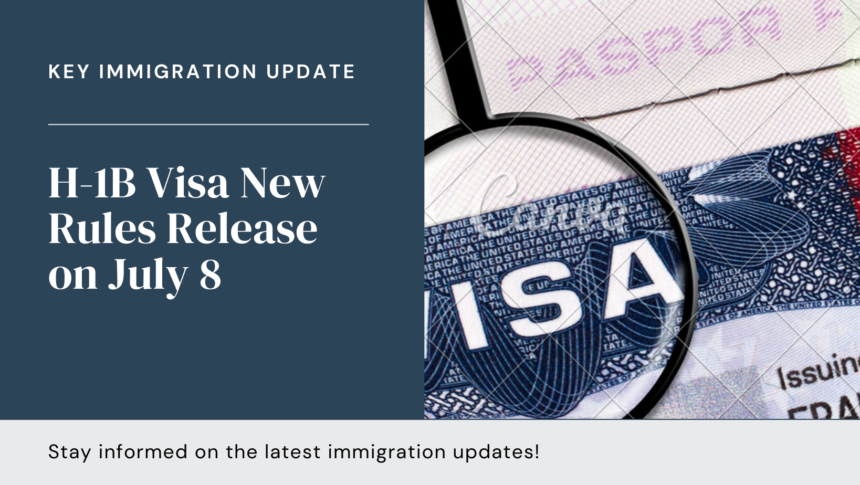H-1B Visa New Rules overview
H-1B visa is a visa provided by the US, which allows a person to enter into the US and work in the country lawfully. It is an immigration visa and also one of the most difficult visa to obtain. Only those who hold the H-1B visa are eligible to apply for the employment based green card which is valid for a maximum of 6 years.
Introduction to the new rules
The new rules for the H-1B visa are all set to be released on 8th July 2024 by the US Citizenship and Immigration Services (USCIS). The new rules are set up specially for combating the Fraud and Illegal Immigrants. These new rules will have a rigid implication on Indians for their employers and professionals.
Proposed Fees
The proposed rule would require an extension of an H-1B visa to cost $4,000, and an extension of an L-1 visa to be charged $4,500. This is a component of the Biometric Entry-Exit Fee and 9/11 Response, which is presently limited to initial visa petitions and employer changes.
The main visa path used by Indian IT companies to send their software engineering staff to the US for employment is the H-1B. Historically, the majority of people applying for H-1B visas have been Indians.
Changes made to the Visa Rules
Before enacting the new visa regulations, the US will release the new regulations in public on July 8. For a limited time, the public will be able to comment on the new regulations. The primary route for Indian IT companies to send their software engineering experts to work in the US is through the H-1B visa. It is significant to remember that historically, Indians have made up the bulk of those granted H-1B visas.
Once the company offers a sponsorship allowance, the USCIS grants residents and work permits for H-1B visa applicants. This permission is only valid for the first three years following the completion of a postgraduate degree.
The effect of new rules on Indians
The new Visa rules have been proposed in a rigid way particularly for Indians in order to curb Illegal Immigrants and enhance the national security which could ultimately effect the Indians in various manner-
Effects on Foreign MBA Students
The changes may make it more tough for foreign MBA students to obtain H-1B status, which could lower the number of students enrolled in US colleges’ MBA program. This change in classification may impact the talent pool and diversity of business schools.
Hefty Fees for Extensions of Visas
The US Department of Homeland Security intends to impose significant costs on corporations for the extension of H-1B and L-1 visas, in addition to revising educational requirements. These payments will apply to employers who have a sizable portion of their workforce on these visas, placing more financial burden on companies who depend on foreign labour.
Final Rule for H-1B Registration
This final rule includes provisions that will codify start date flexibility for some petitions subject to the congressionally required H-1B cap, provide a beneficiary-centric selection procedure for employer registrations, and include further registration process integrity safeguards.
Instead of choosing registrations, the beneficiary-centric approach will choose registrations based on their distinct beneficiaries. The purpose of this new procedure is to lessen the possibility of fraud and guarantee that every beneficiary, irrespective of the quantity of registrations that the employer submits on their behalf, has an equal chance of being chosen. USCIS will require registrants to furnish valid passport or travel document information for each beneficiary starting with the initial registration period for FY 2025.





